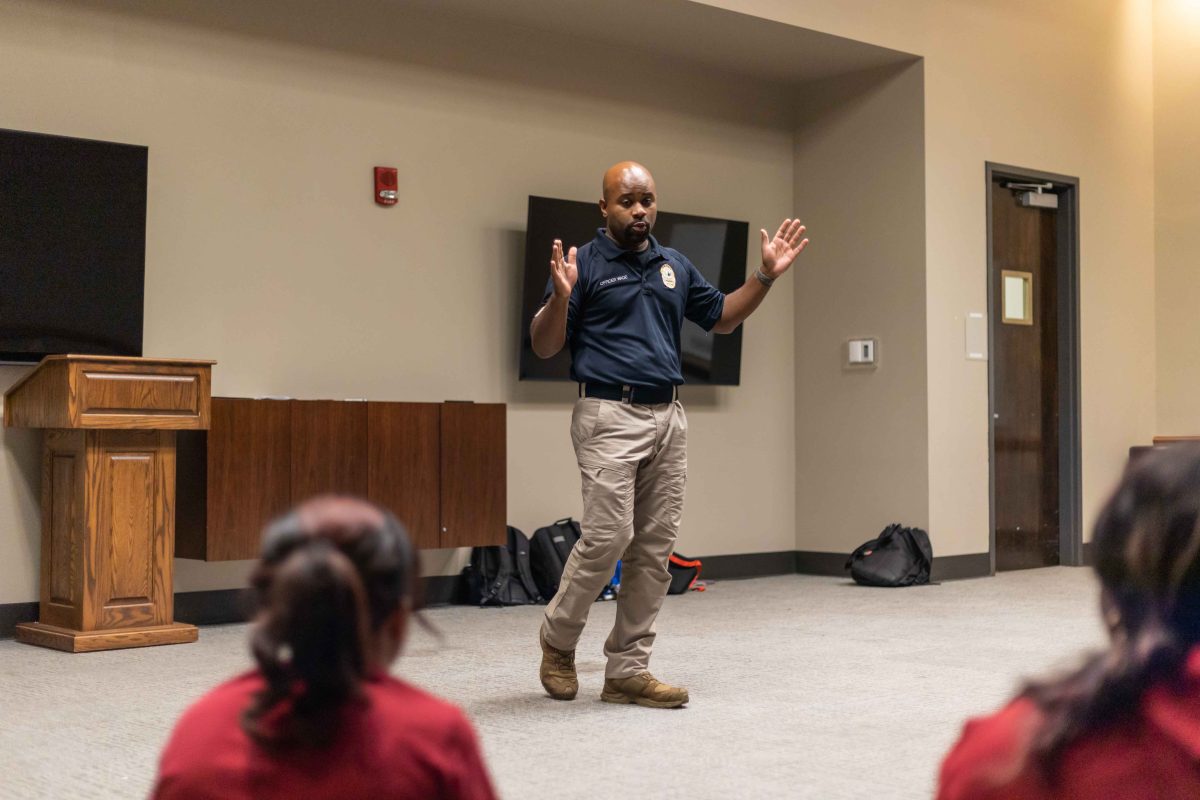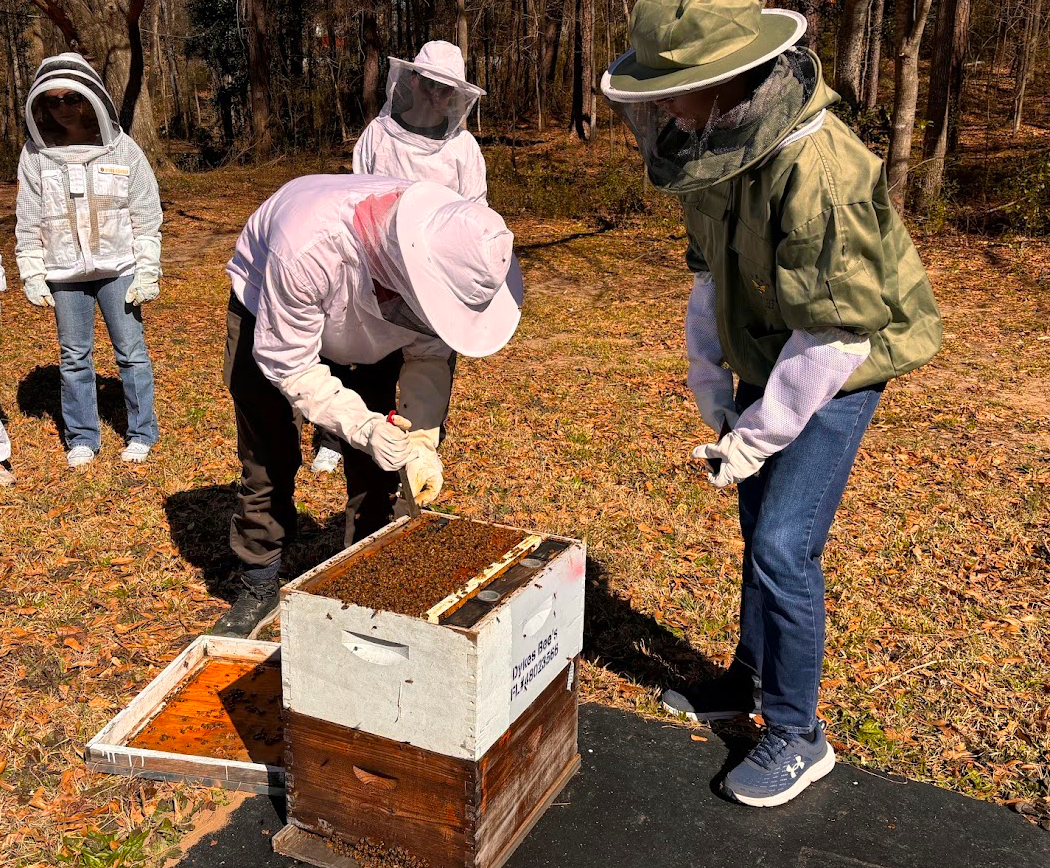Zeta Phi Beta Sorority hosted a free women’s self-defense workshop called “DangerouZ LessonZ” Thursday as a part of an effort to provide self-defense classes for UA students.
The workshop was taught by UAPD officer Marshall Wade. Wade teaches KIN 155, a women’s self-defense class that goes over the basics of the Sexual Harassment/Assault Response and Prevention self-defense system.
13 women attended the event and learned from Wade as he lectured about safety and then demonstrated self-defense techniques for a number of situations.
“There’s over 100 sworn officers in a mile-and-a-half jurisdiction, and that’s a good thing. Call us when you need us,” Wade told the trainees. He said to never be embarrassed to reach out to the police, no matter how small an issue may seem.
The physical training portion of the workshop focused on one main concept: creating space. Physical distance gives someone the chance to either flee a situation or take back control of it.
Wade taught the workshop attendees how to escape from an arm hold and how to move someone out of the way if they are blocking a doorway. He also showed how to put pressure on an arm that is placed around someone’s shoulder in a restraining way, and how to deliver an effective kick to the shins in a situation where someone’s arms are being held down.
Despite the serious subject matter, attendees at the workshop said that it brought a feeling of empowerment and camaraderie. Practicing self-defense techniques on each other, women laughed as they slung arms around each other’s shoulders and then twisted away.
The topic of self-defense was purposefully chosen, said Alaysha Kelly, a junior majoring in political science who was one of the members of Zeta Phi Beta who set up the workshop.
“With our service initiative, we’re really focused on women and child mortality rates, and how to prevent domestic violence,” Kelly said.
Kelly took the UA self-defense course in the spring of last year, which inspired her to introduce it to Zeta Phi Beta.
“We put on this event to make women on campus feel safer walking and going out because there are things happening that we know, but they’re not being publicized,” Kelly said.









